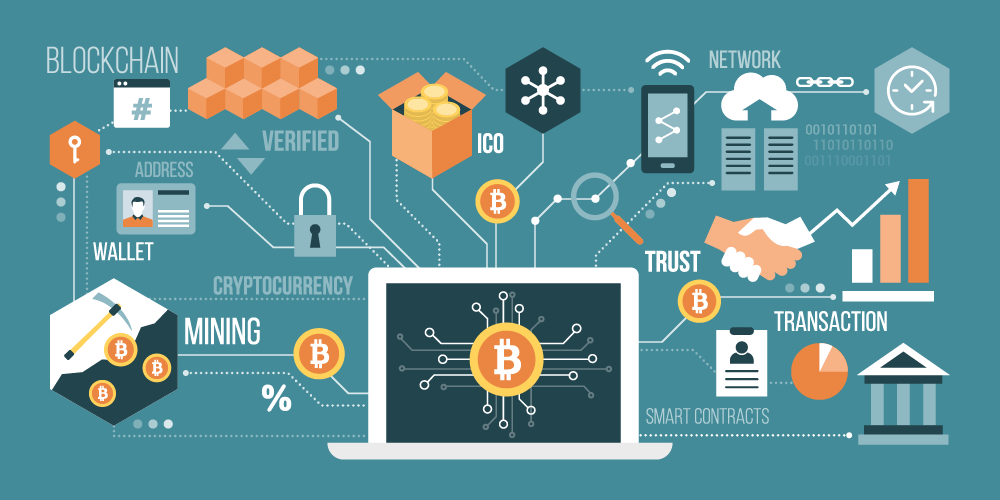
Kleros: is crypto-based dispute resolution the future?
Leveraging smart contracts and blockchain technology to deliver public-service utilities
Crypto represents an evolutionary leap-forward in human coordination. Kleros (a web-based application) tries to leverage crypto-tech to deliver dispute resolution services. Find out more, below.
Blockchain technology and crypto are making the news again – NFTs or Non-Fungible Tokens are all the hype, and Bollywood bigshot Salman Khan is the latest to make a foray into the space. A few weeks earlier, shockwaves were caused by a proposed cryptocurrency regulation bill in India (which does not appear to have been released in the public domain yet). Before that, the Infrastructure Bill in the US drew attention; and earlier still, we saw the DeFi summer, with decentralised financial protocols gaining traction across the world.
As with most things new and unknown, two things tend to happen with crypto as well: people tend to not have the time to deep dive into the space, and remain content with reading headlines and drawing conclusions from them. More importantly, however, the noise generated by the new phenomenon tends to drown out signals from fledgling (but interesting) enterprises in this new space.
In this blogpost, I bring you one such fledging enterprise – Kleros: The Justice Protocol.
(A screenshot from the Kleros website)
A decentralised dispute resolution mechanism
Kleros is a crypto-based application (‘web3 application’), which acts as an online arbitrator. It was founded in 2017 by Federico Ast and Clement Lesaege, and its development efforts are coordinated by a cooperative society registered in France.
‘crypto’ does not mean ‘cryptocurrency’ – the ‘evil’ thing that is out to disbalance the economy. Rather, it refers to a new phase of technological advancement in internet technology – the advent of web3. Web3 relies on a combination of public blockchain technology and smart contracts to create a new kind of internet, which enables peer-to-peer transactions, without intermediaries (think, peer-to-peer public marketplace, minus Amazon Inc). This may be understood in contrast to web2, which was marked by internet-based applications, operated by intermediaries (Facebook, Google, Zomato etc.); and web1, which was the primitive era of the web, limited to information consumption (think emails and blogs only).
Kleros leverages the capabilities of web3 to create an interesting new model of online dispute resolution, which is fast and automated. Disputes are decided by ‘jurors’ who are randomly selected individuals from a larger ‘juror pool’. One can become a juror without any screening or permission, although it requires an investment of capital. A majority vote amongst the selected jurors determines the outcome of a dispute. Litigants are empowered to challenge the jurors’ decision by triggering a pre-defined appeal process; whereupon the dispute is brought before a jury, more than twice as large as the original jury. This new jury is also assembled from the juror pool.
The alignment of economic incentives
A fundamental characteristic of Kleros is that it leverages blockchain technology to create an alignment of economic incentives, which in-turn results in predictability of behaviour on the part of jurors.
In order to participate as a juror, one needs to hodl the Kleros token – ‘Pinakion’ (PNK). Assume for now (without understanding) that PNK tokens hold real, current value. Since PNK hodlers attach real value to their tokens, it is possible for economic incentives to be aligned within the group in a manner that motivates jurors to act predictably. The Kleros ecosystem is designed precisely in such a manner. Economic interests are aligned to encourage jurors to make ‘coherent’ (or correct) decisions.
One can think of PNK tokens as Monopoly money, and Kleros as the game of Monopoly. Just as Monopoly incentivises the hoarding of property, Kleros incentivises coherent voting.
How does it work?
The PNK token is a fungible token on the ethereum blockchain, that conforms to the ERC-20 standard. Fundamentally, this means three things: (i) every 1 PNK token is equal in value to every other 1 PNK; (ii) a PNK token cannot be manufactured or duplicated fraudulently, and (iii) the PNK token has real value as a consequence of its integration with the ethereum ecosystem.
A word about ethereum here: ethereum is like Windows 98, running on a globally-shared internet computer. It allows for the creation of applications (like Kleros), in a manner where these applications can communicate and interact with each other. ‘ETH’ or ether, is the currency of the ethereum ecosystem and today’s open market values 1 ETH at approximately $4,100. Tokens on ethereum-based applications, in turn, find their value in correspondence to ETH. As on October 21 2021, 1 PNK is valued at approximately 0.00003 ETH.
In order to become eligible as a juror, individuals must use their fiat currency to first purchase PNK tokens from the open market. They must then ‘stake’ a minimum quantity of these PNK tokens in a particular Kleros court (there are multiple Kleros courts, arranged subject-matter wise; see ‘Join a Court’ here). By staking PNK tokens, one becomes a part of the ‘juror pool’ for a particular court, and is eligible to participate as a juror when called upon to do so. Once a juror is called upon to arbitrate a dispute, the juror assesses the claims of both sides, considers the evidence presented, and registers a (usually non-public) vote in favour of either counterparty.
Once all votes are in, the jury’s decision is declared and the staked tokens are re-distributed amongst the jurors based on the following logic: if a juror votes with the majority, their decision is ‘coherent’, and they are rewarded with additional PNK coins on top of their original stake. However, if a juror votes against the majority, they vote ‘incoherently’ and lose a portion of the tokens they had staked originally. Arbitration fees paid by the counterparties are also distributed amongst the jurors who vote ‘coherently’.
This system of deciding disputes creates economic incentives for jurors, encouraging them to act appropriately. The promise of earning a reward on their stake encourages jurors to participate in the system, and to strive to vote coherently. The knowledge that incoherent voting will result in losing one’s staked PNK tokens discourages malicious voting.
The proposition then is that Kleros jurors will always try to vote coherently to secure their staked PNK tokens, and get an additional reward. As long as a dispute has a clear black-and-white outcome, such a system holds clear value.
What new technology enables this?
Kleros is an application built on the ethereum blockchain. Since Kleros is a software application, it is a closed logical system with predefined events and occurrences. In other words, there is a great degree of certainty with respect to how the dispute will be handled within the predefined parameters of the code. It is code-based delivery of dispute resolution services, with a fixed logic of how a dispute will be resolved.
Ethereum’s blockchain technology enables verifiable ownership over digital assets. This is made possible by the use of blockchain technology to create a public ledger of all transactions, eliminating the problem of double-spending. Ingeniously, ethereum uses the blockchain to store not just transaction information (like Bitcoin does), but also software code. Thus, it enables the creation of verifiable ownership over digital assets and also allows for code-based interactions with such digital assets. The PNK token is one such digital asset, secured by the ethereum network. It is possible to align economic incentives within the Kleros ecosystem and discourage jurors from acting maliciously only because the PNK token has verifiable ownership, and because it cannot be fraudulently duplicated by its hodler.
By strong convention, applications on the ethereum blockchain have developed certain other characteristics, which are shared by Kleros:
- The Kleros code is open-source and immutable. The ‘software code’ used to create the application is publicly available for anyone to read, and once deployed, the logic of the code is unchangeable. This means that one does not have to take my word (or Kleros’ word) for how their ecosystem works. One can simply go read their code and assure themselves of the claims being made by the application. In other words, immutable open-source code creates verifiable trust: you get what you see.
- The Kleros application is (theoretically) free from the overarching control of any singular entity. Since everything on the blockchain is open-source and runs based on predetermined code, there is comparatively limited room for intervention by anyone once a web3 application is deployed. In whatever little room the code leaves for innovation and re-development, decisions are not taken by any singular entity. Rather, governance on Kleros is performed by voting amongst all individuals who hodl PNK tokens. Theoretically, this stands a proxy for decentralised and democratic governance of the platform. In practical terms however, it is observed that the promoters of the initiative hold the majority of the PNK tokens and are de facto governors in the space.
A new dawn
The Kleros ecosystem is a remarkable example of how blockchain-based technologies can be leveraged to provide public services. The fundamental value proposition of Kleros as a dispute resolution mechanism lies in the fact that it is an automated process which is relatively immune from the vagaries of human whim. This makes dispute resolution predictable and time-bound. Participation in the system is permissionless (no one can prohibit someone else from participating) and economic incentives are aligned to discourage malicious behaviour. Most importantly, the open-source nature of the code allows public verification of operational claims, which in turn creates verifiable trust.
This is a remarkable shift from web2 applications like Facebook and Google, where users have no idea what they are getting into. Am I here to connect with my friends? Or am I here to farm data for Facebook? It is also a remarkable shift from the traditional judicial system, where human discretion plays a pivotal role – not just in decision-making, but also with regards to when that decision will finally be arrived at.
Earlier in the year, a Mexican civil court upheld and enforced an arbitration award, which was arrived at by using Kleros. The dispute in question was a landlord-tenant dispute over rent. The tenancy agreement designated an arbitrator, and asked him to trigger Kleros proceedings to decide disputes. A dispute arose, and the arbitrator duly referred it to Kleros. A jury of three Kleros jurors ruled in favour of the landlord, following the lead of documentation prepared by the arbitrator. Later, a civil court went ahead and enforced this decision (access more details about the case here).
To be clear, this is not to say that Kleros is the solution for all the woes that hamstring the Indian judicial system. Majoritarian voting may be appropriate for simple yes-or-no questions, but perhaps not for complex issues of law. The efficacy of a Kleros-like system, in the context of complex grey-area disputes, is unclear at the moment.
Nevertheless, Kleros represents commendable impetus. It is a good idea to leverage new technologies, especially something as powerful as smart contracting blockchain technologies, to deliver public-service utilities. As hypothesized by Mr. Rajeev Mantri (Managing Director, Navam Capital – an early stage VC firm) in a recent podcast episode, smart contracts and blockchain technology hold the potential to make important interventions in a “broken [Indian] legal system”. The observation that the Indian legal system is broken, has unfortunately become a platitude as of today. Are smart contracts on a public blockchain the future of dispute resolution? Only time will tell.
All views are personal.
